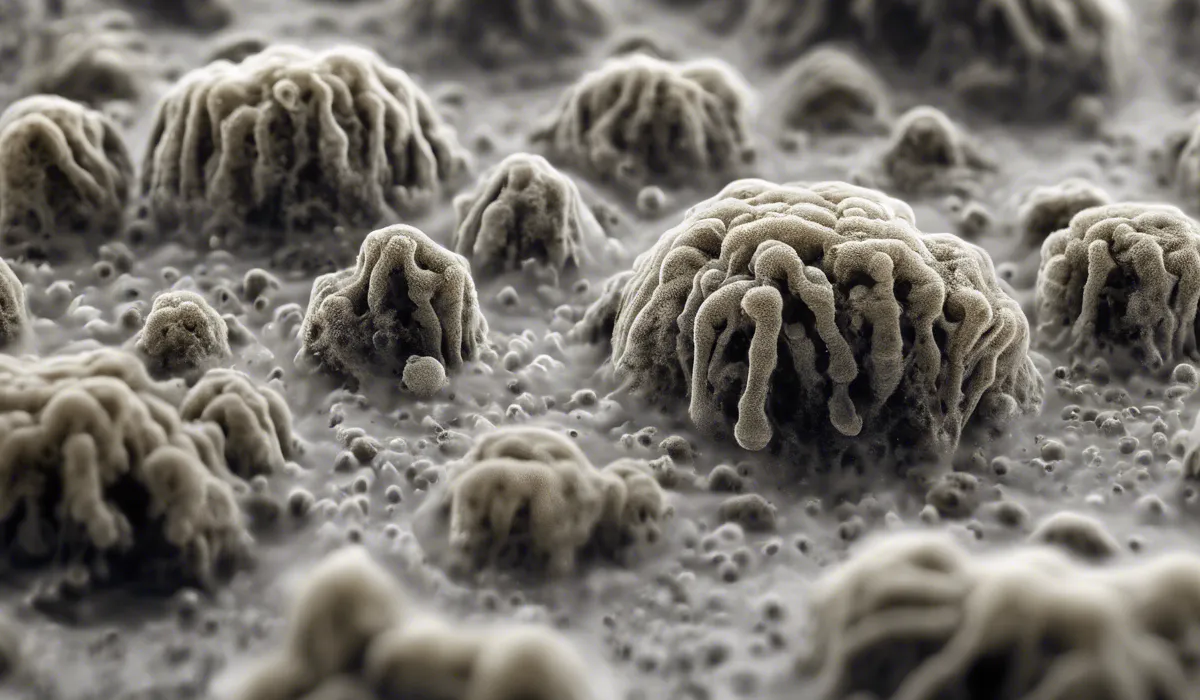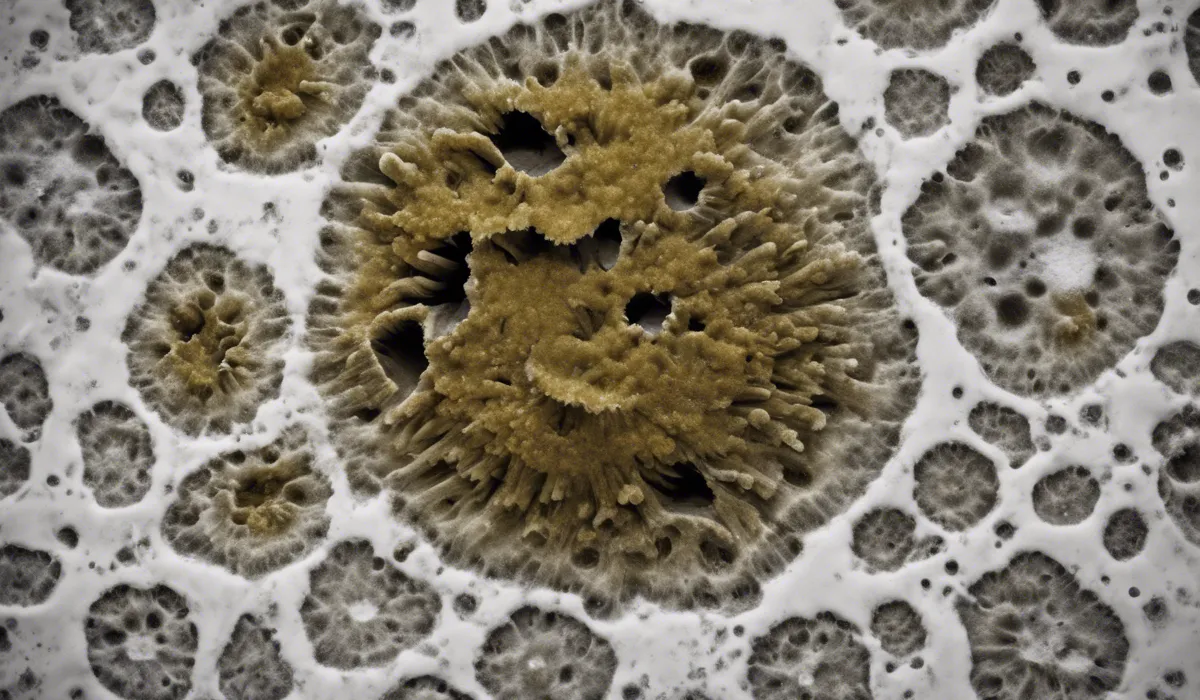Bleach, hydrogen peroxide, and vinegar can effectively kill mold spores. Sunlight and high temperatures can also neutralize spores. Use protective gear when handling mold-killing agents.
Understanding Mold Spores

What Are Mold Spores?
Mold spores are tiny, lightweight particles that travel through the air. They are the seeds of mold, which means they can grow into mold if they land somewhere with the right conditions.
These spores are too small to see without a microscope. However, when many spores grow into mold, you can see and sometimes smell it.
Perfect Conditions for Mold Spores
Mold spores love damp, warm, and dark places. They need moisture to start growing. This could be from a leaky pipe, high humidity, or a spill that wasn’t cleaned up.
They also like it when there’s not much air moving around, so they can settle down and start to grow.
Health Risks of Mold and Spores
When mold grows, it can be bad for your health. Some people might cough, sneeze, or get a stuffy nose. Others might feel their eyes itch or have trouble breathing.
For people with allergies or asthma, mold can make their symptoms worse. This is why it’s important to keep mold away.
Why Kill Mold Spores?
Getting rid of mold spores is important. It keeps your home safe and healthy. If you don’t, mold can grow and damage walls, furniture, and even your clothes.
It can also make you and your family sick. Killing mold spores helps stop mold before it starts.
Chemical Methods to Kill Mold Spores

The Power of Bleach
Bleach is strong and can kill mold spores on surfaces that don’t soak up water, like your bathtub or kitchen counter.
It’s like a superhero for cleaning, but it’s not good for places that water can sink into, like wood or drywall.
Hydrogen Peroxide: A Bleach Alternative
Hydrogen peroxide is another cleaner that can kill mold. It’s safer for colors and doesn’t smell as strong as bleach.
You can use it on many things, but remember to check a small spot first to make sure it’s okay.
Vinegar’s Antifungal Secrets
Vinegar is not just for salads! It can kill mold too. Spray it on the mold, let it sit for an hour, and then wipe it away.
The smell of vinegar goes away after a while, leaving your home mold-free and fresh.
Commercial Mold Assassins
There are special cleaners you can buy that are made just for killing mold. They come with instructions to help you use them safely and effectively.
Remember, these are strong cleaners, so you should always be careful when using them.
Staying Safe with Chemicals
When using strong cleaners, wear gloves, goggles, and sometimes a mask. This keeps the cleaner off your skin and out of your eyes and lungs.
Always open a window or turn on a fan to keep the air moving, and follow the instructions on the cleaner’s label.
Natural and Preventative Measures

Nature’s Mold Fighters: Essential Oils
Essential oils like tea tree oil and clove oil are nature’s way of fighting mold. You can mix a little bit with water and spray it on the mold.
These oils smell nice and are a natural choice for keeping your home mold-free.
Sunlight: The Natural Mold Killer
Sunlight is great at killing mold. When you let sunlight into your home, it helps stop mold from growing.
If you have things that are moldy, like a rug, you can put them in the sun to help kill the mold.
Keep the Air Moving
Good airflow in your home helps keep mold away. Use fans and open windows to keep air moving. This helps dry out damp spots where mold likes to grow.
Clean Regularly to Keep Mold Away
Cleaning often means less chance for mold to grow. Wipe up spills, clean up crumbs, and vacuum regularly. This helps make sure mold doesn’t have a chance to start growing.
Control Humidity at Home
When your home is too damp, mold can grow. Use a dehumidifier to take extra water out of the air. This helps keep your home dry and mold-free.
In small spaces, like closets, you can use moisture absorbers to keep things dry.
Final Thoughts
Effective mold spore eradication can be achieved using bleach, hydrogen peroxide, or vinegar.
Exposure to sunlight and high temperatures also serves to neutralize mold spores. It’s crucial to wear protective gear when applying these mold-killing agents to ensure safety during the process.
